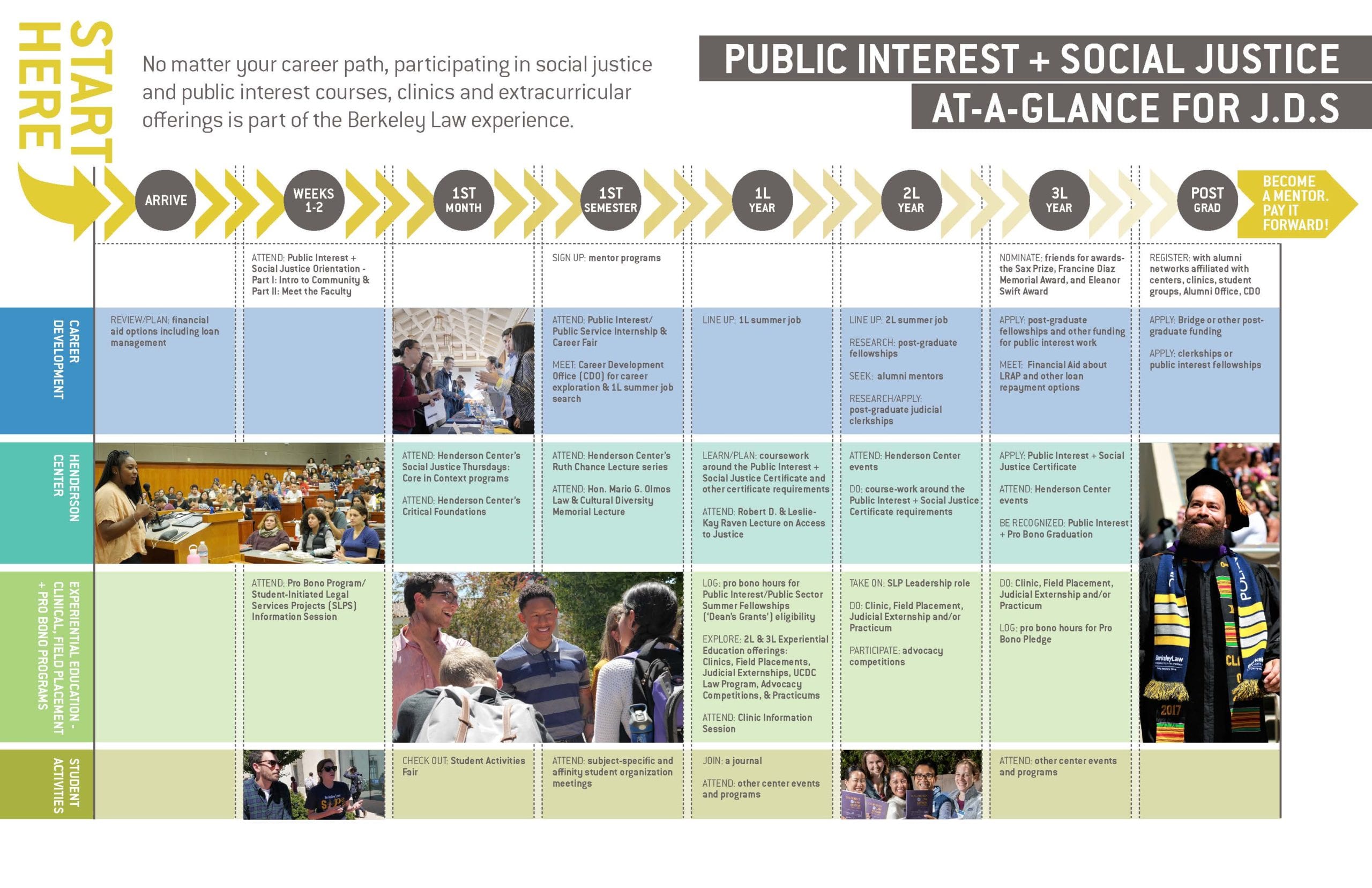A SOCIAL JUSTICE AND PUBLIC INTEREST PERSPECTIVE ON THE 1L CORE CURRICULUM FOR JDs
Here’s the truth: For many students excited to work for the public and the marginalized, the first year of law school can be especially disorienting. It’s not always obvious how the foundational curriculum you must master intersects with the vision of service and equity you’ve dreamt of. Electives seem far in the future. So let us offer a creative and honest way to engage your 1L core classes that lay the foundation for public interest and social justice lawyering.
In the first year, you will take Corporate Responsibility and Liability (through it will be called Torts). You’ll learn the fundamentals of Civil Rights and Environmental Litigation (but your casebook will be titled ‘Civil Procedure’). You’ll study Foundations of Environmental Law (also known as Property) and The History of Crime and Incarceration in the United States (also known as Criminal Law).
You’ll master Basics of Consumer Rights and Remedies (also known as Contracts) and you’ll spend hours pouring over Key Debates on States’ Rights, Reproductive Justice, Affirmative Action, Gender Identity, Free Speech, and More (i.e., Constitutional Law.)
You’ll also learn How to Find Cases That Support Your Position, How to Write a Winning Brief, and What Makes an Oral Argument Outstanding (the classes will be called Legal Research & Writing and Written & Oral Advocacy).
These requirements teach you the building blocks of our legal system. They will arm you with critical concepts and skills that will be relevant to every field of law, like how to read cases and build legal arguments–the skills just are not always framed in a social justice or public interest way. Many professors are ready, willing, and able to talk about how the raw material intersects with social justice issues. If you keep your mind open, stay connected to the community around you, and embrace opportunities to see beyond the traditional text, you will have learned a tremendous amount about social justice and the public good in your first year.
In addition, we recommend that you consider opportunities to connect and learn outside the classroom such as:
- Volunteering with Student- Initiated Legal Services Projects (SLPS)
- Participating in Social Justice at Berkeley Law programs and other activities offered by the Henderson Center
- Taking advantage of the law school’s research centers’ offerings
- Participating in student organizations, such as identity and interest groups, the Social Justice Student Network, or law journals.
- Learning about clinical programs, field placements, externships and practicum offerings for the future. Though these opportunities are not generally available to you in your first year, we encourage you to attend meetings and gatherings that discuss these offerings so that you can plan ahead.
Finally, do reach out to lawyers and professors whose work you admire. They will almost always be thrilled to meet you.
After the First Year
After your first year you will be free to select your own courses. Students are urged to investigate all the class offerings keeping in mind our advice to balance doctrinal with skills and clinical courses. There are a plethora of courses that would meet anyone’s definition of public interest – and students will need to be strategic in selecting courses that meet their objectives and allow them to acquire the theory and practice necessary to be a well-rounded, thoughtful, and grounded public interest lawyer.
SOCIAL JUSTICE and PUBLIC INTEREST. IS THERE A DIFFERENCE?
As with so many legal questions, the answer is: it depends who you ask! Reasonable people can disagree about whether social justice and public interest are synonyms. But consider this: Our public interest peers work tirelessly for the common good. They strive to protect rights and opportunities that benefit “the public.” They fight for liberties that are accessible to us all no matter how we are situated within society. This is the power of public interest work–it serves everyone. Its perspective is crucial.
Our social justice peers are often up to something a bit different. Social justice promotes rights, power, and opportunity expressly for people who are chronically deprived of these things, whether by structural or individualized sources. It explicitly aims to redress wrongs committed against the least visible and least powerful, and to reform legal, political, and social systems so that they encourage equity. This, too, is crucial work.
To be sure, there is significant and wonderful overlap between “public interest work” and “social justice work,” but it is worth considering the differences, too. Your imagination may be captured by one more than the other, or you may see them as indistinct. Either way–no matter what, precisely, guides your time at Berkeley Law or your career–we welcome you to this community.
